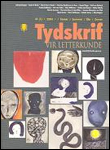Waarom schrijft u? Waarom schrijft u in het Nederlands?
DOI :
https://doi.org/10.4314/tvl.v41i1.29664Mots-clés :
Netherlands Antilles, Aruba, Papiamento, Antilean literatureRésumé
Four languages are used daily on the six islands that comprise the Netherlands Antilles and Aruba and form part of the Kingdom of the Netherlands: the national languages English and Papiamento (an interlanguage based upon Dutch, English, Portuguese and Spanish), the Dutch of the Kingdom and the regional language, Spanish. Each of these four languages has a literary tradition on the islands. Although Dutch is still the official language and used as the language of school instruction and the written language of business its wider functions have diminished. Over the past decades the language has virtually disappeared from the islands' cultural life, consequently Dutch-Antillean literature is also gradually declining. On Curaҫao, Aruba and Bonaire Papiamento predominates and will have to replace Dutch as the literary language, but as long as it is not a language of instruction this will be problematic. Over the past couple of years an important literary tradition in English has developed on Saint Maartin, Saba and Saint-Eustatius. Alongside the written literature an oral tradition exists up to the present day on the islands. Cola Debrot, Boeli van Leeuwen, Tip Marugg and Frank Martinus Arion are well known internationally but there are many other writers who belong to the literary canons of the islands.
Téléchargements
Références
...
Téléchargements
Publiée
Numéro
Rubrique
Licence
(c) Copyright Tydskrif vir Letterkunde 2003

Ce travail est disponible sous licence Creative Commons Attribution - Partage dans les Mêmes Conditions 4.0 International.


 https://orcid.org/0000-0001-6465-6584
https://orcid.org/0000-0001-6465-6584


.png)